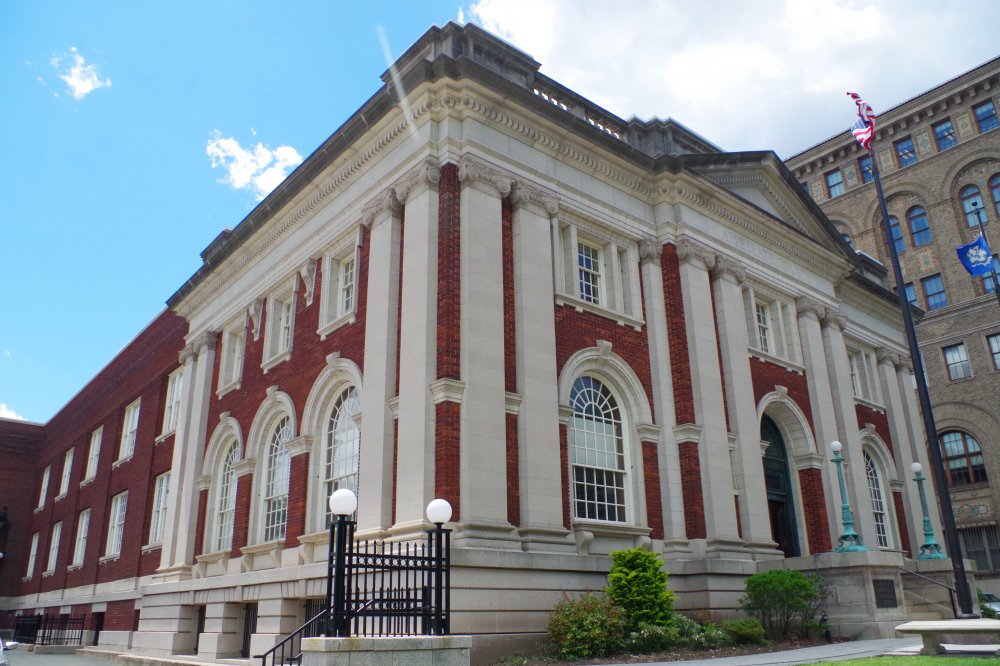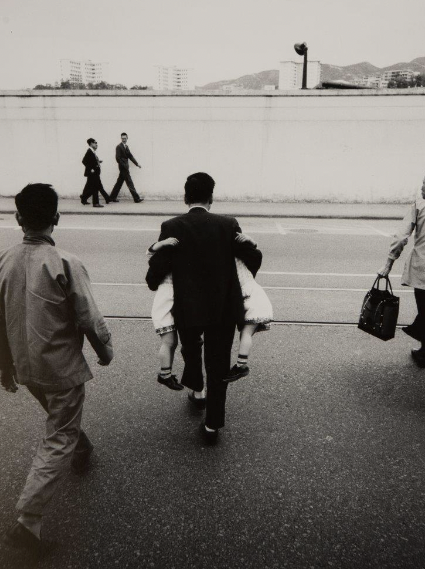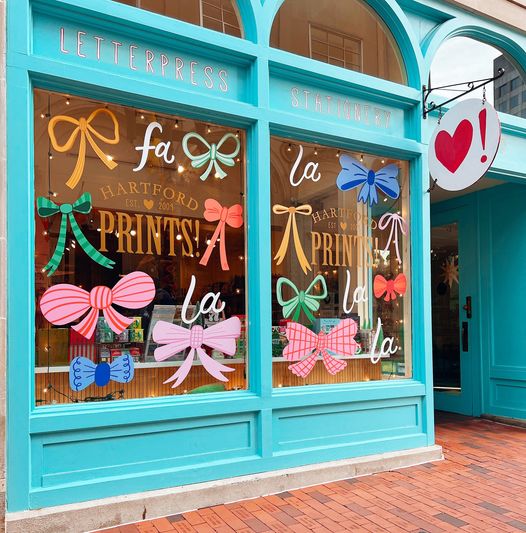Jack P. Carroll ’24
Co-Editor-in-Chief
In January, the Connecticut Appellate Court stayed an appeal in an ongoing defamation lawsuit against a group of Trinity alums over the 2019 Churchill Club controversy brought by Professor of Political Science Gregory Smith and former Trinity student Nicholas Engstrom.
The Court’s order comes after the alums named as defendants–Aaron Supple ’20, Karen Montejo ’20, Hendrick Xiong-Calmes ’22, and Giana Moreno ’20–appealed the Superior Court’s denial of their motion to dismiss in November. The appeal is pending the disposition by the Connecticut Supreme Court of the consolidated appeals in an unrelated appeals court case titled Pryor v. Brignole, according to the Appellate Court’s order. If the appeal fails, the case is set to go to trial in April 2023.
Supple, Montejo, Calmes, and Moreno, represented by private counsel at Robinson & Cole in Hartford and Sheppard Mullin in Los Angeles, attempted to dismiss the lawsuit under Connecticut’s anti-Strategic Litigation Against Public Participation (SLAPP) statute, which protects certain free speech interests under the United States and Connecticut Constitutions on “matters of public concern.” The Plaintiffs, Smith and Engstrom, are represented by Beck and Eldergill of Manchester, Connecticut.
Judge James T. Graham of the Hartford Superior Court denied the defendants’ Motion to Dismiss last November in a lengthy decision, finding that Trinity College’s campus was not a public forum for purposes of the First Amendment and that the “defendants’ conduct in posting flyers [did not] constitute an engagement in protected speech.”
Chief of Staff Jason Rojas stated the College’s position on the lawsuit in an email to the Tripod on June 6: “We are aware of the lawsuit filed by Professor Smith and others against a number of former students. As the college was never named a party and the Tripod and two student staff of the newspaper have since been removed in this legal action, it would be inappropriate for us to comment on this case.” Rojas continued, observing that the College maintains that “we do not believe that a lawsuit is the appropriate method for resolving disputes between faculty members and students. The college has well-established processes and practices, both formal and informal, for resolving such disputes.”
Vice President for Student Success and Enrollment Management Joe DiChristina, as well as the counsel for the defendants and plaintiffs, did not respond to the Tripod‘s request for comment.
The lawsuit, filed on Apr. 5, 2021, was brought by Smith, a tenured professor in Trinity’s Political Science Department and Founder and President of the Churchill Institute, and former Trinity student Nicholas Engstrom. Their complaint, which alleges libel and negligent infliction of emotional distress, stems from the controversy surrounding the approval of the Churchill Club by Trinity’s Student Government Association (SGA) in the spring of 2019.
According to the group’s Facebook page, the Churchill Institute was founded in Hartford in 2016 to promote the “serious teaching, learning and scholarship about Western Civilization and to promote a vigorous discussion of its preservation and future trajectory.” The group’s studies emphasized the “[c]lassical origins of the Tradition, its transformation, preservation and extension through the Christian era, its further transformation with the commencement of Modernity and the growth of Modern Commercial Republicanism and the ramifications of the Postmodern attacks on the entire Tradition.” The Tripod reported that the Churchill Institute was formed by Professor Smith and that it hosted its inaugural colloquium in 2017.
As the Tripod previously reported, the Churchill Club drew ire from members of the SGA when it sought formal recognition in March 2019. Questions were reportedly raised about the overlap between the rhetoric used by the Churchill Institute and far-right groups. The Club faced criticism for its focus on Western civilization and conservative leanings despite the group’s non-partisan status. The Tripod also reported that members of the student body at the time felt like the Club perpetuated the ideology of white supremacy. Professor Smith subsequently denounced these allegations in a Tripod editorial titled “Trinity’s Descent into Illiberal Education.”
The plaintiffs’ complaint reports that students in the Churchill Club applied for formal recognition by the SGA in March 2019. Formal recognition is a “routine procedural mechanism through which the Churchill Club would be eligible to host events on college property and to apply for funding from the Student Activities Fund.” In order to receive formal recognition, a club has to develop a constitution, obtain the signature of 25 students, and make an appearance before the SGA to answer questions. The process for official recognition is outlined in Trinity’s Manual for Student Organizations, distributed by the Office of Student Activities, Involvement, and Leadership (S.A.I.L.).
Members of the Churchill Club appeared before the SGA on Mar. 3, and they were questioned for approximately 90 minutes. Dozens of protesting students who attended the meeting spoke out against formally recognizing the Club. The SGA continued the vote on recognizing the Club until the Mar. 10 meeting where there were also protests. At that meeting, the SGA did not cast a vote and instead announced that a “public forum” or “town hall” concerning the recognition of the Club would be held at a later time. On Mar. 31, the SGA officially announced that two “drop-in student town halls” were scheduled for Apr. 10 and 11.
The complaint reports that on Apr. 10 defendants Supple, Montejo, Xiong-Calmes, and Moreno posted flyers around campus which featured the Churchill Logo, a photograph of Professor Smith, and above his photograph, the caption: “the new racism is every bit as ugly as the old.” The same exact flyers were posted with a photograph of Engstrom. An investigation by the College found Supple, Montejo, Xiong-Calmes, and Moreno responsible for “creating, printing, and publishing the flyers.”
The depictions of the plaintiffs on these flyers form the basis of the lawsuit, which accuses the four alums of libel per se, libel per quod, and negligent infliction of emotional distress. According to the complaint, the flyers negatively impacted Professor Smith’s career: “The defamatory statements published by Defendant have diminished the esteem, respect, goodwill, and/or confidence the Plaintiff has earned throughout his career. Furthermore, fellow academics, peers, and colleagues no longer associate with Plaintiff. Some or all of the aforesaid injuries are likely to be permanent in nature, and the Plaintiff has a fear of the future consequences of his injuries.” The complaint also reports that Engstrom, as a result of the flyers, was denied and/or lost job opportunities, internship opportunities, and compelled to transfer to another university.
The flyers posted by Supple, Montejo, Xiong-Calmes, and Moreno received criticism from various groups and students on campus at the time. In a Tripod editorial following the incident, the Trinity College Democrats stated that “we condemn the public attack on individual members of the Churchill Club. Attacking individuals is not conducive to an open dialogue about the origins and impact of the Churchill Club, which is where our opposition to this organization lies.” Other students described the posters as “utterly detestable” and publicly stated that they “need to be addressed.” Engstrom, in the year following the event, appeared with conservative media personality Candace Owens and discussed the incident from his perspective after he transferred to Southern Methodist University in Texas, according to his Linkedin.
Following these events, the Tripod reported that an email was sent to the student body on Monday, Apr. 29, announcing the SGA voted to reject the Churchill Club. According to the email, the rejection stemmed from the approval of the club (referring to the students opposed to the club being labeled “militant”) and the behavior of Smith who, the email claims, curbed free speech on campus by threatening legal action against students.
“We do recognize that the club completed all of the steps regarding approval, but for the reasons stated above, at this time, the Trinity College Student Government Association denies the Churchill Club proposal for approval as an SGA recognized organization,” wrote SGA President-Elect Trinna Larsen ’20 and Vice President Lexi Zanger ’19.
The Tripod also reported that opposition to the Club’s rhetoric was affirmed by various faculty members in an email that was sent a week before the SGA voted. The email, which was signed by over 40 professors, stated that “an uncritical celebration of Western civilization perpetuates its own intellectual, cultural, and racial exclusions…It is evident that ‘Western’ intellectual, political, and cultural traditions are in no way marginalized on this campus.” The professors also voiced support for those on campus who they argue are marginalized including “Black, Latinx, Asian, Indigenous, LGBTQ+, international, and first-generation college students, among other groups.”
The SGA’s rejection of the Churchill Club came days after it scheduled a date for the vote in a meeting that was closed to the Tripod and the public. At a previous SGA meeting, the President’s Cabinet advised the SGA to consider delaying the vote on the Club so that the College could bring an outside consultant to discuss the situation and ways to resolve it. The administration and SGA received a letter from the non-profit Foundation for Individual Rights in Education (FIRE), but it was not shared over concerns that it might influence the vote of SGA representatives.
In his letter to the SGA, Ryne Weiss, a Research Programs Coordinator for FIRE, argued that (1) the SGA cannot deny recognition to a group because of their viewpoint, beliefs, or value; and (2) the Churchill Club’s viewpoints do not lose protection because some in the Trinity community find them offensive.
“Trinity College is a private institution and therefore not legally required by the First Amendment to recognize student or faculty expressive rights. However, it voluntarily makes promises to do so and is morally and contractually bound to adhere to those commitments,” wrote Weiss. He continued, noting that these “commitments are not important just because they are made to students and faculty. These commitments to freedom of expression are also a condition of Trinity College’s accreditation by the Commission on Institutions of Higher Education of the New England Association of Schools and Colleges, which requires accredited institutions to be ‘committed to the free pursuit and dissemination of’ knowledge, and that an institution’s policies be consistent with the mission.”
Immediately after the SGA announced its decision, President of the College Joanne Berger-Sweeney and the President’s Cabinet issued a statement on Monday, Apr. 29, in which they confirmed that the Churchill Club was formally recognized by the College as a student organization. “As an educational institution, we have an unshakable commitment to freedom of expression and inquiry, open debate and discourse, and valuing all voices. It is the administration’s understanding that the group had met the requirements of the college and of SGA and should therefore have received SGA recognition.”
Berger-Sweeney’s announcement also clarified the process for obtaining formal recognition. She indicated that the College’s policies envision a “two-step process” regarding student groups, giving S.A.I.L. the authority to review and authorize student organizations. She reported that S.A.I.L. had already reviewed and approved the Churchill Club’s application materials earlier in the 2019 spring semester. Berger-Sweeney confirmed the Club as an “officially recognized” student group, and that its members are entitled to reserve college facilities, host events, and utilize campus communication channels, and take other actions consistent with official recognition. “Such support of the Churchill Club is meant neither as an endorsement of an ideology, nor a rejection or marginalization of any population,” wrote Berger-Sweeney and the President’s Cabinet.
Later that day on Apr. 29, Berger-Sweeney released a statement regarding her discussions with over 50 students who were disappointed with the administration’s message to the community after the SGA voted against recognition of the Churchill Club. Responding to inquiries into her beliefs regarding racism, Berger-Sweeney wrote that she “denounce[s] white supremacy, and all that it represents in society today. I denounce racism and discrimination against historically and traditionally marginalized groups and I offer those members of our community my strongest support, recognition, and affirmation.” Berger-Sweeney also promised to review her previous email in which she and the President’s Cabinet confirmed the Churchill Club was formally recognized.
Following Berger-Sweeney’s announcement, protesting students staged an hours-long sit-in at the President’s Office. The students organized outside the President’s Office to speak with her and this request was soon fulfilled. Students voiced their concerns over allowing the Churchill Club to exist on campus, as well as the perceived rejection by the administration of the SGA’s role in approving clubs. The protests, which received extensive coverage from The Hartford Courant, took place on May 1 and May 2.
On May 1, the SGA sent out a resolution to the community opposing administrative interference in the approval process of student organizations. The resolution claims that the SGA has “sole authority” over approving student organizations for official recognition despite Berger-Sweeney’s Apr. 29 announcement indicating the power rests with S.A.I.L. The SGA’s resolution was appended to an online petition: “Affirm Trinity College Student Government’s authority to reject the Churchill Club.” The petition had garnered 1,082 signatures at the time this article was written.
The Churchill Club appears to no longer be operative at Trinity College. The Club’s members have either transferred or graduated; Professor Smith continues to teach courses in the Political Science Department. The Churchill Institute’s Facebook page has not been updated since 2019 when the group posted a link to the first edition of its publication The Trinity Review, their news magazine, as well as an event posting for a lecture at Trinity with the National Review Institute (“Our Polarized Politics: Liberalism & Conservatism Today”) scheduled for October of that year.
The Churchill controversy appears to have had a negative impact on campus life at Trinity during that time period. As the Tripod previously reported, the results of the 2019 Campus Climate Survey suggested that Trinity consistently scored worse than other small colleges in the same peer group regarding how members of the community experienced discrimination and harassment, as well as how the community viewed the administration’s support for diversity and inclusion. Berger-Sweeney and Vice President for Diversity, Equity, and Inclusion Anita Davis noted at the time that this survey was administered while the campus was experiencing the social unrest surrounding the Churchill Club. Only 34% of undergraduate students responded to the survey while 63% of the faculty and 56% of the staff responded.
This article concerns a lawsuit in which The Trinity Tripod was originally a defendant but has since been removed voluntarily by the plaintiffs. The Tripod did not initially report on the matter as it did not want to jeopardize its legal position.








[…] I was studying in London at the time, I saw horrifying reports of my Churchill friends back home being doxxed and harassed. Posters were even hung up on campus […]